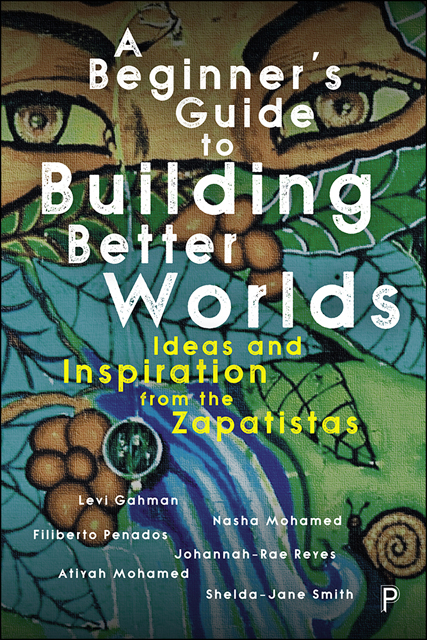Book contents
- Frontmatter
- Dedication
- Contents
- List of figures
- Guilty parties
- 1 Introduction: from liberal bystanding to emancipatory praxis
- 2 A world where many worlds fit
- 3 The coloniser’s model/neoliberal state of the world
- 4 Modernity-coloniality and Indigenous realities
- 5 Dispossession, extractivism and violence
- 6 Critical consciousness and praxis
- 7 Political education and radical pedagogy
- 8 Gender justice and social reproduction
- 9 Health, food sovereignty, solidarity economies
- 10 A battle for the soul of education
- Notes
- References
- Index
10 - A battle for the soul of education
Published online by Cambridge University Press: 13 October 2022
- Frontmatter
- Dedication
- Contents
- List of figures
- Guilty parties
- 1 Introduction: from liberal bystanding to emancipatory praxis
- 2 A world where many worlds fit
- 3 The coloniser’s model/neoliberal state of the world
- 4 Modernity-coloniality and Indigenous realities
- 5 Dispossession, extractivism and violence
- 6 Critical consciousness and praxis
- 7 Political education and radical pedagogy
- 8 Gender justice and social reproduction
- 9 Health, food sovereignty, solidarity economies
- 10 A battle for the soul of education
- Notes
- References
- Index
Summary
The problems, challenges and individualism at hand
What's ridiculous about all that is that those who oppress us today pretend to play the role of our ‘liberators’.
Zapatista Squadron 421 (2021)When viewed in its historical and contemporary geopolitical context, the Zapatista struggle has opened up possibilities for a broad array of emancipatory ways of reorganising social relations, economies, education, governance, food systems, day-to-day activities, interpersonal interactions and even thought. As not only the Zapatistas but also many readers will know, it takes an inordinate amount of courage, fortitude and heart to stand up to and declare ‘¡Ya basta!’ (‘Enough is enough!’) in the face of an oppressive authority figure, institution or status quo. The consequences and retribution can be devastating, as we are sure many of you are also all too familiar with.
In reiterating that the purpose of their resistance is ‘to hand down life’, the latest Zapatista communiqués related to their ‘Declaration for Life’ make it clear what it is we fight for – life. The purpose of our respective struggles against the pressures of capitalist-modernity is to be able to hand down life (a dignified life, you might add) to the next generation. Amidst a global pandemic, examining the political determinants of health, as well as understanding the many forms that healing can take – whether this be through gender justice, food systems or alternative economies – is one way to enact care. Creating a society of mutual care, solidarity and resilience will require deep reimagining of our ‘common sense’ and taken-for-granted institutions and infrastructures, to consider whether we need to reform or rebuild from scratch. The Zapatistas, and their recognition that community, health and ecosystems are interdependent, politically determined and multiple, is such one example. Despite the economic realities that remain, the struggle and resistance that the Zapatistas embody has not been foreclosed by the global crises we all are contending with, albeit differentially. On the contrary, it is the very foundations of community rather than the individual that has seen them through. The message is clear that the struggle for life is a collective global struggle.
- Type
- Chapter
- Information
- A Beginner’s Guide to Building Better WorldsIdeas and Inspiration from the Zapatistas, pp. 150 - 155Publisher: Bristol University PressPrint publication year: 2022



